Hard Drive Replacement
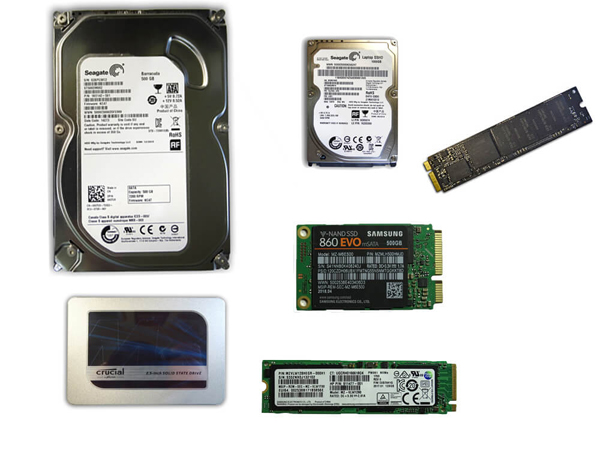
Haslam IT can replace or upgrade the hard drive in most equipment. Whether your
existing hard drive has failed or whether you just need a larger or faster drive we
can quickly replace the hard drive in your PC, laptop, Mac or games console.
If your original disk is still functional, we can clone your original
system to a new drive.
If necessary, we can re-install the operating
system on your device and copy any data that can still be read from the
original drive. If the original disk is unreadable but contains
important information, we can send it to our specialist data recovery
partner.
We keep a large stock of hard drives so chances are we can fit a replacement drive on the day that you call.
Why not consider upgrading to an SSD?

A solid state drive (SSD) has no moving parts and therefore runs much faster than a traditional spinning disk. We can fit all kinds of SSD into all kinds of equipment. There are several types of SSD starting with a standard SATA interface in a 2.5" form factor to the latest NVMe drives that connect over the PCIe bus giving lightning fast performance. To use an NVMe drive, you will need a dedicated slot on your existing motherboard but if you are not sure of what type of drive you need, please give us a call and we would be happy to discuss your requirements.
Games Console Upgrades
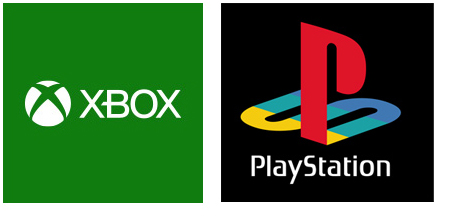
Whether the hard drive has failed or you are running out of space and need a larger drive to store all of your games, we can replace the hard drive in your Sony PlayStation or Microsoft X-Box.
If you are just looking to increase storage capacity, we can copy all of your existing games from the original hard disk to a larger drive.
Different types of Hard Disk
and Solid-State Drives
| Drive Type | Description | Transfer Rate | |
|---|---|---|---|
| 2.5" SATA Hard Drive |
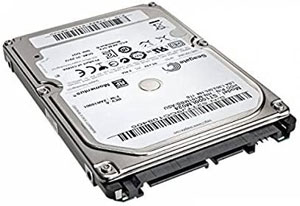
|
These are used in older (or low spec) laptops and some gaming consoles. They generally have a SATA interface and have rotation speeds of 5,400 rpm or 7,200 rpm. These can be upgraded to a SATA SSD for better performance. |
80 - 160 MBps |
| 3.5" SATA Hard Drive |
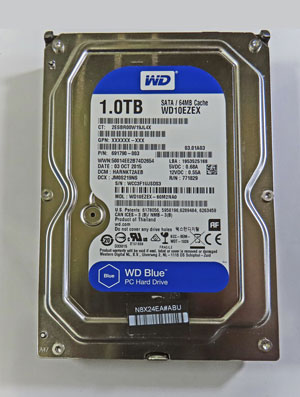
|
These are typically used is desktop PCs or some Mac desktops. They generally have a SATA interface and have rotation speeds of 5,400 rpm or 7,200 rpm. These can also be upgraded to a SATA SSD for better performance, though an adaptor is likely to be needed. |
100 - 200 MBps |
| 2.5" SATA SSD |

|
These are the same form factor as a 2.5" hard drive (above) and can be fitted into any machine that uses a 2.5" HDD. They have no moving parts so are at least 5 times faster than a traditional hard drive. | 300 - 600 MBps We generally use Crucial MX500 SSDs that have a transfer rate of 560 MB/s |
| mSATA SSD |
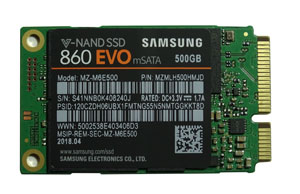
|
These are fitted into some laptop computers but are less common these days. They connect over a SATA interface. | Around 480 MB/s |
| M.2 SATA SSD |
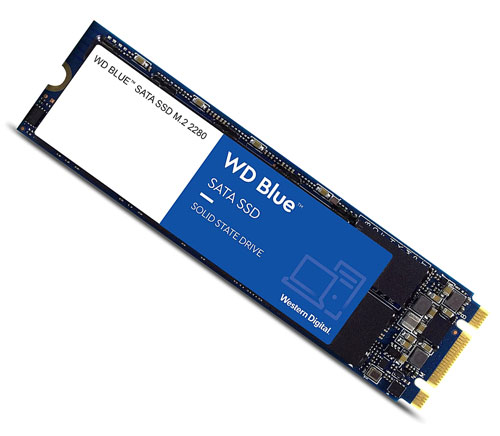
|
M.2 SSDs use a very small form factor. They come in a range of lengths, the most common being 2280 which are 22 mm wide and 80 mm long. They are also available as 2260 or 2240 (60 mm and 40 mm lengths respectively). M.2 drives can connect via the SATA interface or PCI express. The latter are refered to as NVMe drives (see below). The type and size of drive that you need will depend on your motherboard. M.2 Drives typically have one or two slots, refered to as "keys". They can be B, M or B+M keyed depending on whether they connect via SATA or PCIe. These drives typically use B+M keys for SATA interfaces but you would need to check your motherboard documentation. | Typically around 560 MB/s |
| NVMe SSD |
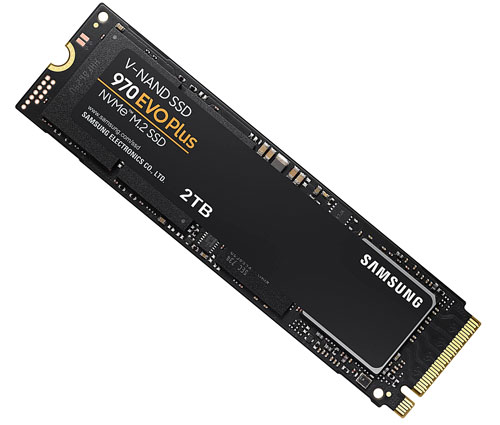
|
NVMe are the latest types of solid state drive and offer the best performance. They connect via the PCIe bus to give maximum data throughput. They typically use M.2 2280 form factor and are generally "M" keyed i.e. have a slot on the left hand side when the edge connector is viewed from the front and facing downwards. They can be 1 to 5th generation - the higher the generation, the faster the speed. | 1 - 5 GB/s |
